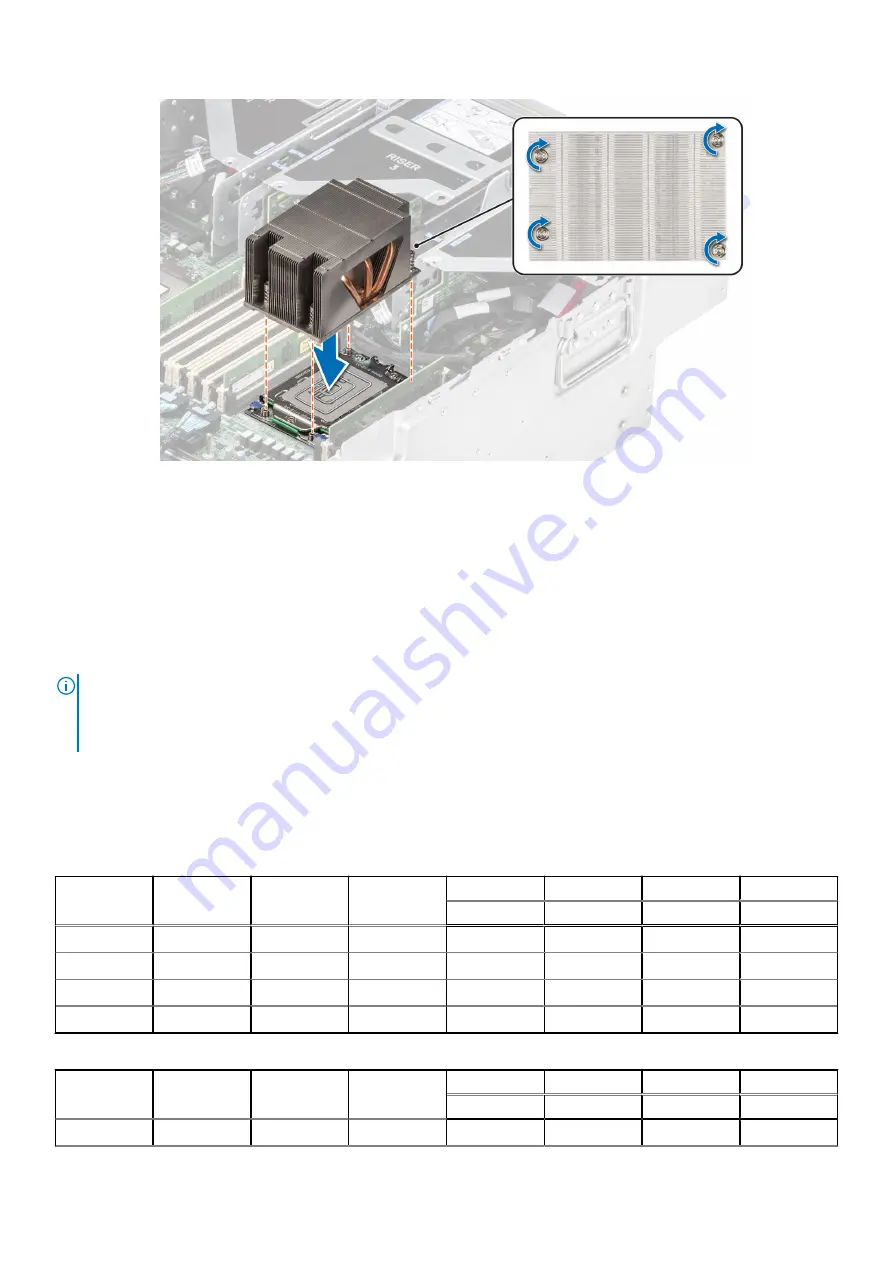
Figure 73. Installing the heat sink
Next steps
1.
.
2. Follow the procedure listed in the
After working inside your system
on page 24.
Expansion cards and expansion card risers
NOTE:
A system event entry is logged in the iDRAC Lifecycle Controller if an expansion card riser is not supported or
missing. It does not prevent your system from turning on. However, if a F1/F2 pause occurs with an error message,
see
Troubleshooting expansion cards
section in the
Dell EMC PowerEdge Servers Troubleshooting Guide
.
Expansion card installation guidelines
The following table describes the supported expansion cards:
Table 16. Expansion card riser configuration 1
PCIe slots
Width
Length
Height
Processor 1
Processor 2
Processor 2
Processor 2
Riser 1A
Riser 2C
Riser 3D
Riser 4B
Slot 2
DW
HL
FH
x16
-
-
-
Slot 6
SW
HL
LP
-
x16
-
-
Slot 7
SW
HL
FH
-
-
-
x8
Slot 8
SW
HL
FH
-
-
-
x8
Table 17. Expansion card riser configuration 2
PCIe slots
Width
Length
Height
Processor 1
Processor 2
Processor 2
Processor 2
Riser 1A
Riser 2C
Riser 3D
Riser 4A
Slot 2
DW
HL
FH
x16
-
-
-
Installing and removing system components
73
















































